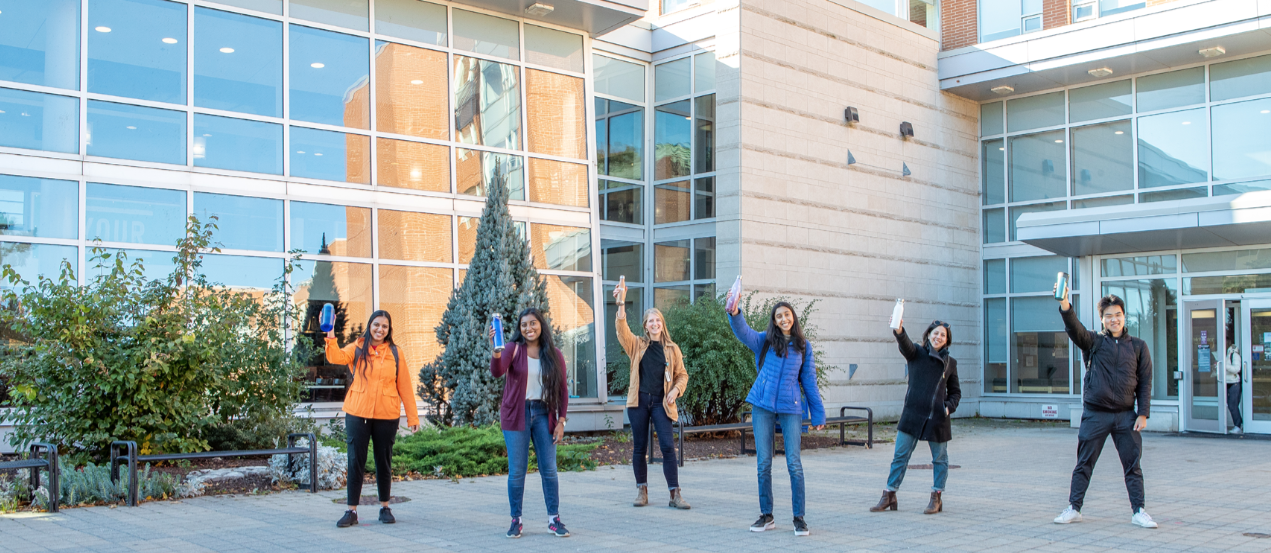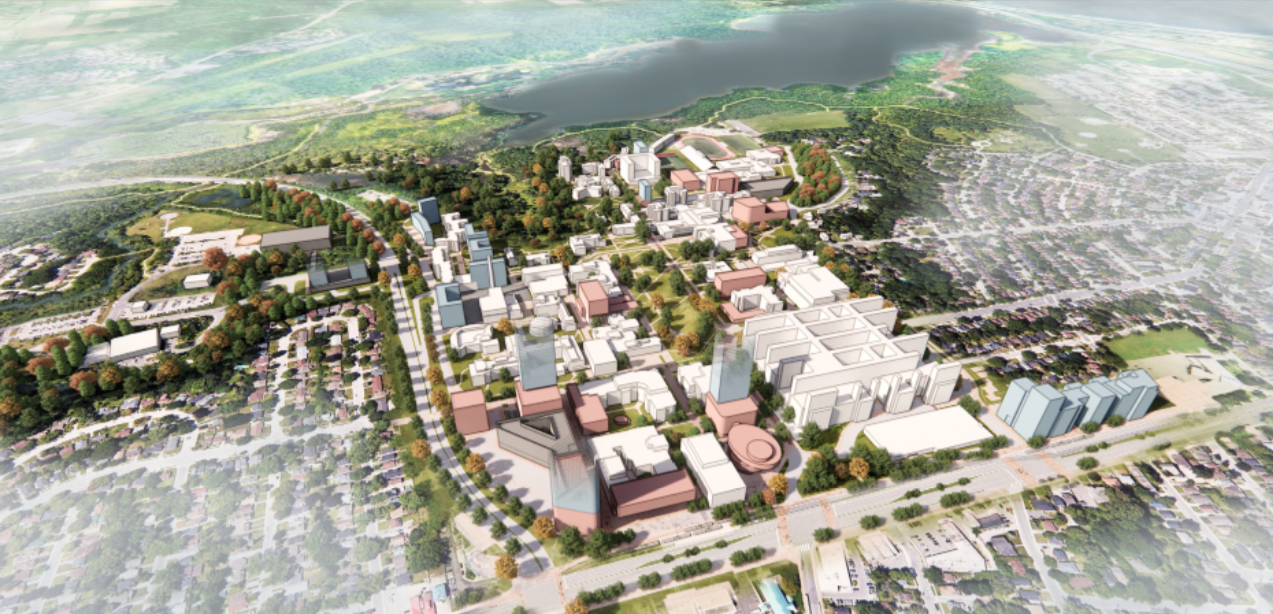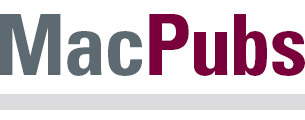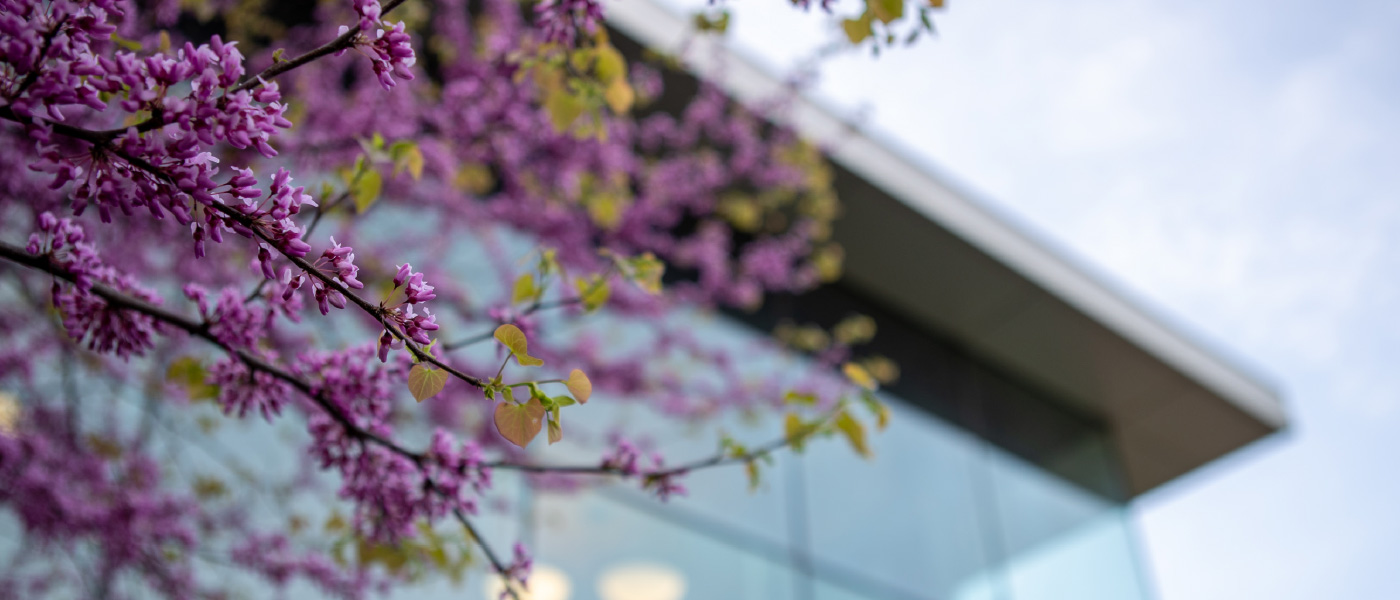Priority 5: Operational Excellence
Information Box Group

Human Resources Services continues to promote and contribute to a healthy and safe community at McMaster through systemic change and improvements in supports to enhance the psychological health and safety of faculty and staff
Integrated planning between administrative and academic leadership to ensure the optimization of operational policies and processes
Information Box Group
McMaster is launching a new digital student experience hub that seamlessly integrates various digital resources, services, and tools in one place, enhancing the overall student experience. This initiative will also streamline administrative processes and provide better information sharing across university departments, enhancing operational excellence.
Human Resources digitized the MacID procurement process by launching the Pre-Hire MacID eForm, which has improved the onboarding process for new hires. HR continues to deploy enhancements to existing HR eForms to drive continuous improvement, improve accuracy of data, and enable increased operational efficiency.
Learn More
McMaster’s University Technology Services (UTS) continued to make progress on technological advances across the university in 2022-23:
The DeGroote School of Business has developed an integrated teaching and faculty resource planning model which uses trends in student demand for business courses to optimize course offerings and inform faculty hiring needs.
The Department of Pediatrics centralized all education program administration, moving away from a generalist staffing model to concentrate support within a unit of subject matter experts who support education program directors and enhance learner experiences.
Transformative IT structure that will deliver a foundation of core information technologies and services
Information Box Group
McMaster is implementing a three-year Information Security Roadmap aimed at strengthening McMaster’s information security risk posture. In 2022/2023, several enhancements to existing security measures and new solutions have been introduced to strengthen the university’s ability to prevent, detect, and respond to an ever-changing cyber security threat landscape.
The Faculty of Health Sciences’ Finance 2 Go project streamlines high-volume, low-complexity financial tasks by assigning them to a team of specialists, relieving research and education staff from the administrative burden of entering financial transactions. In 2021-22, more than 800 people delegated their expense claims to Finance 2 Go and rejection rates dropped more than 50 per cent. This is partly due to adopting a JIRA ticketing system, allowing them to track requests, turnaround time, errors, and reprocessing.
McMaster Continuing Education is working with UTS, the Registrar, Finance and other units to implement a dedicated student registration and administration system called Destiny One. This system will better serve adult learners, internal and external partners.
The Faculty of Health Sciences’ Computer Services Unit has developed a new database to replace the antiquated MacFacts. This tool will be used across the Faculty to track and report on the activities of faculty members and will bring substantial improvements in both efficiency and accuracy of information.

A group of students, faculty and staff developed the Bring Your Own Bottle campaign to reduce single-use plastic water bottles by encouraging the use of the water bottle filling stations located throughout campus.
Housing & Conference Services (HCS) launched several programs and tools to deliver core technology and services to the McMaster community:
- The Marketing & Communications unit within HCS launched summer virtual residence tours, enabling students to receive personalized one-on-one virtual tours.
- HCS implemented PRIME BPM, a cloud-based, end-to-end business process management tool that allows all units to accurately map, analyze, improve and view processes to save time and costs.
- The IT unit in HCS launched the QReserve room-booking service. This cloud-based service creates efficiencies by allowing staff in HCS to view and book rooms and resources in HCS offices.
- HCS updated its dashboard design in StarRez for early check-ins. This includes identifying early check-ins with improved technology from guest to Service Centre, resulting in savings on labour costs and greater time efficiencies for staff.
Cultivate human potential by enabling university strategy in a manner which is responsive to the evolving needs of our diverse community
Information Box Group
McMaster is working to unify student and staff activities onto a single identification card, simplifying tasks and creating a more seamless campus experience. The foundational groundwork needed to allow for greater integration has been completed, and several smaller phased integrations are currently in progress.
A Hire to Pay task force, co-sponsored by the Office of the Provost and Office of the Vice-President (Operations &Finance) was launched to identify short and long-term recommendations to administrative processes across the university and ensure the accurate and timely processing of hiring and payroll for all Faculties, departments, and Human Resources Services.
In partnership with Institutional Research and Analysis, Human Resources has developed the HR Workforce Dashboard, which equips Faculty and department leaders with dynamic employee data needed to analyze workforce data for trends and compliance, and to inform better business decisions. Most recently, HR was able to integrate the data cookbook, an authoritative source for answering questions about McMaster data elements or common terms about data processes and systems, with HR reporting Hub to make these reports more accessible and transparent for users.
Human Resources continued to offer internal leadership programs with a focus on professional development including Personal Leaders, Knowledge Leaders and Strategic Leaders. The programs cover topics including skill development, cultivating human potential and collaborative relationship building, and integrate three key themes – leading self, leading others and leading at the university. As of April 2023, 143 leaders have complected leadership programming this year.
The Health Leadership Academy, a partnership between McMaster’s Faculty of Health Sciences and the DeGroote School of Business developed a senior leadership program, Health Improvement and Faculty Innovation, targeted at academic and administrative leaders aspiring to senior leadership positions. The first cohort will begin in fall 2023.
Human Resources, in partnership with the Indigenous Health Learning Lodge, designed and launched a new course “The Social Injustice of Sameness – Shape Shifting Leadership within the Academy” for people managers. This session is expected to provide leaders with an opportunity to learn more about the Indigenous experience related to higher education and to critically reflect on key elements of Indigenous allyship and a self-determining approach to systemic change.
Learn More
Human Resources Services continues to promote and contribute to a healthy and safe community at McMaster through systemic change and improvements in supports to enhance the psychological health and safety of faculty and staff:
Learn More
In 2023, McMaster revised its Risk Management Manual, publicly affirming the university’s dedication to promoting psychological health and safety. The updated manual now encompasses both physical and psychological aspects within the health and safety policy. Additionally, the mandatory health and safety training is undergoing updates to include language and essential components related to psychological health and safety:
McMaster has launched a set of flexible work guidelines. Developed by the Workplace and Employee Experience committee, the guidelines were designed to assist managers and employees in navigating flexible work arrangements, the guidelines establish a standard process for employees and managers to propose and approve a flexible work arrangement, and ensure consistency as these arrangements are made across Faculties and departments.
To enhance operational excellence across departments and foster continuous learning and improvement, the Student Success Centre leadership team completed their Green Belt certification as part of Lean Six Sigma. The Faculty of Social Sciences sponsored 17 staff members to complete Lean Six Sigma Green Belt certification.
The Student Wellness Centre introduced a walk-in clinic providing same-day access to a counsellor for students seeking support. More than 325 students accessed the walk-in clinic within the first four months of opening. This stepped-care approach allows the counsellor to assess the needs in short, same-day appointments and then direct students appropriately to their required level of intervention.
Provide a campus environment that is functional, accessible, sustainable and attractive, and promotes and supports learning, teaching, research and community
Information Box Group
Several construction and renovation projects started or continued in 2022-23:
- Construction continues on the McLean Centre for Collaborative Discovery with a target opening date of early 2025.
- Athletics & Recreation is finalizing the McMaster Student Activity Building and Fitness Expansion at David Braley Athletic Centre and Ivor Wynne Centre. The expanded facilities will improve access and flexibility with capital investments over the next several years.
- Housing & Conference Services is building the new 10 Bay graduate residence in downtown Hamilton. When completed, the 30-story building will add approximately 600 bed spaces for graduate students and their families to the HCS residence portfolio.
The Residence Life unit in Housing & Conference Services (HCS) worked extensively with the Sexual Violence Prevention and Response Office to deliver an enhanced training program for staff. The training provides the necessary tools to effectively respond to disclosures of sexual and gender-based violence on campus.
During Summer 2022, Housing & Conference Services hosted 21 conference groups from May 1 to August 13, 2022, and held 4,170 events on-campus between May 1, 2022, and March 15, 2023.
Housing & Conference Services expanded its Signature Venues portfolio, adding Crescent House and Alumni Memorial Hall. Available for events, executive retreats, and corporate receptions, these unique venues are open to students, staff and McMaster community members.
McMaster set a goal of reducing the carbon exposure of its investments by 45 per cent by 2030. As of 2023, McMaster has surpassed this goal, reducing the?carbon exposure?of its investments by 49 per cent.

Engage our community as we work to transform our campus into a living laboratory for sustainability, focusing on a green and carbon free campus
Information Box Group

McMaster University unveiled its ambitious University Plan, outlining the vision for the institution’s growth and development over the next decade.
McMaster unveiled its University Plan, outlining the vision for the institution’s growth and development over the next decade. The plan serves as a comprehensive framework that will influence the design of buildings, outdoor spaces, infrastructure and the overall experience of being at McMaster. The formulation of the University Plan involved active participation from numerous members of the university and the broader community. Notably, the final phase of public engagement saw a remarkable response, with a total of 1,100 voices contributing their insights and ideas to shape the future of McMaster.
Learn More
McMaster continues to set and surpass aggressive targets to decarbonize its investment portfolio that are aligned with those of other Canadian universities:
McMaster announced the installation of geothermal technology to heat and cool McMaster’s new greenhouse, which is currently under construction. Facilities Services is also exploring multiple locations on campus for future geothermal sites.
McMaster hired its inaugural Director of Sustainability. This position will play an essential role in executing important initiatives including developing ambitious targets; defining key metrics related to McMaster’s inaugural, campus-wide Sustainability Strategy; and helping to steer the university’s Net Zero Carbon Roadmap.
Learn More
McMaster and other members of the “Cootes to Escarpment EcoPark System,” including the Royal Botanical Gardens, received $3.5 million from Parks Canada to support several projects aimed at restoring and protecting the wetlands, plants, and wildlife in the 2,200-hectare corridor that makes up the EcoPark System located, in part, on McMaster’s campus. Projects include:
Learn More
McMaster Academic Sustainability Programs continue to engage students through various curricular and co-curricular programs in the area of sustainability. According to its report released in fall 2022:
Hundreds of campus and community members planted 1,000 trees in the McMaster Carbon Sink Forest. As part of this academic and research initiative led by the McMaster Centre for Climate Change, students, post-doctoral researchers and faculty are addressing climate change by monitoring the growth and health of each tree, and measuring the amount of carbon dioxide each tree is pulling out of the atmosphere. This data will be freely available to researchers around the world who are planting similar forests.
Students from a third-year Academic Sustainability Program course collaborated with Facility Services and University Technology Services to coordinate ACCESS Tech, a reuse technology donation drive that took place on campus. Empowerment Squared, a local charitable organization that supports newcomer, racialized, and marginalized communities with the tools and opportunities to thrive, distributed the donated technology to local families.
A working group of students, faculty and staff developed the Bring Your Own Bottle campaign to reduce single-use plastic water bottles by encouraging the McMaster community to use the water bottle filling stations located throughout campus. The campaign, made possible through McMaster Okanagan special project funding, includes a website, campus-wide signage and a digital map of all the 200-plus water refilling locations across campus and in residence.
McMaster and other members of the “Cootes to Escarpment EcoPark System”, including the Royal Botanical Gardens, received
$3.5 million
from Parks Canada to support several projects aimed at restoring and protecting the wetlands, plants, and wildlife in the 2,200-hectare corridor that makes up the EcoPark System located, in part, on McMaster’s campus.
Financial stewardship and risk mitigation to develop and steward the university’s financial assets securely and effectively
Information Box Group
McMaster’s ability to structurally balance and fund strategic and capital priorities demonstrates prudent financial management enabled by McMaster’s transparent budget model that places fiscal accountabilities with area leaders who initiate one-time investments to advance the university mission, vision, and strategic priorities.
A review of the budget model will provide recommendations for better strategic funding allocations in the face of a rapidly changing higher education landscape and resourcing challenges.
In 2022/2023, McMaster attained a significant milestone by achieving its 2025 goal of reducing the Investment Pool’s weighted average carbon intensity (WACI) by more than 65% two years earlier than originally targeted.
McMaster achieved a significant milestone in its plans to invest in the clean economy. In March 2022, the Board of Governors approved a commitment of US$24 million (C$32 million) to invest in the Brookfield Global Transition Fund (BGTF), a fund which invests in clean infrastructure investments. In 2023 McMaster, through its investment in the BGTF, achieved a significant milestone funding over C$10 million in infrastructure investments that support the transition to a global clean economy.
McMaster’s credit profile and financial position which is viewed as very strong by the credit rating agencies. Standard and Poor’s (S&P) and Dominion Bond Rating Service (DBRS) rate McMaster as AA, which is among the strongest in the higher education sector.
Multiple initiatives to simplify financial processes and enhance reporting will improve efficiency to reduce expenses and improve stewardship of assets. Projects include transaction workflow authorization in line with policies, implementation of internal billings for research activity, integration with human resources and student systems, improving payment card security, and enabling electronic delivery of donor trust fund statements.
Administrative areas across McMaster are proactively using insights from UniForum to improve our processes and services. UniForum at McMaster is a program that provides McMaster with data on how support services are delivered across the university. Results from the past five years have shown that not only has satisfaction with McMaster services gone up in every measured service, but satisfaction scores across many operational functions at the University are among the highest of the Canadian universities that submit data.
Working in partnership with MIP, the University made significant progress on MIP’s major development initiative, providing an additional 2.8 million square feet of new and renovated life sciences and biomanufacturing space. Work on this strategic initiative is continuing and expected to conclude in 2023/24.


